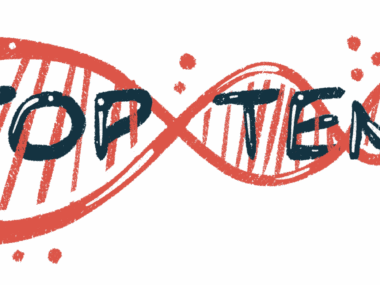Engineered tRNA fixes faulty dystrophin protein in DMD mice
Molecule helps muscle cells overwrite mutation that causes production to fail
Written by |

An engineered transfer RNA (tRNA) molecule developed by hC Bioscience could be a fix for the protein that’s lacking in Duchenne muscular dystrophy (DMD), supporting the company’s ongoing efforts to identify a lead molecule that may treat the disease.
In a study with a mouse model of DMD, the engineered tRNA resulted in the production of a fully working protein in muscle cells by helping their protein-producing machinery overwrite a mutation that would otherwise cause production to fail.
Jose Lora, PhD, hC Bioscience’s chief scientific officer, presented the proof-of-concept preclinical data at this year’s Cure Duchenne’s Futures National Conference, which took place May 23-26 in Orlando, Florida.
“We are grateful for the opportunity to share these results with the DMD community as we explore the potential of tRNA-based protein editing,” Leslie Williams, hC Bioscience’s CEO, said in a company press release.
Engineered tRNA fixes DMD nonsense mutation
DMD is caused by a mutation in the gene that provides instructions to produce dystrophin, a protein in muscles. Without the protein, muscles are prone to damage from normal use and become gradually weaker over time.
One type of disease-causing mutation is called a nonsense mutation, which introduces an early stop signal in the instructions to produce dystrophin. This results in a shorter version of the protein being produced that doesn’t function properly.
Fixing a nonsense mutation would let the protein-producing machinery move past that stop signal. Engineered tRNA “achieves that goal,” Williams said. “No other treatment, approved or investigational, restores production of full-length dystrophin.”
Normally, tRNA helps decode the instructions needed to produce a protein. The company’s tRNA technology builds on these skills. Whenever an engineered tRNA detects a nonsense mutation, it adds a new building block, called an amino acid, to the growing protein chain to ensure production doesn’t stop.
“This rapidly emerging modality has the potential to be a new breakthrough therapeutic for about one in four people affected by DMD,” Williams said. “We see protein editing as a key innovation for advancing patient care and our goal is to work with families, physicians, and clinical researchers to realize its full promise.”
The DMD program, still in early development, is funded by Cure Duchenne Ventures, the investment arm of the nonprofit Cure Duchenne. The company is also testing its tRNA technology for cancer and severe hemophilia A, a genetic blood disease.






